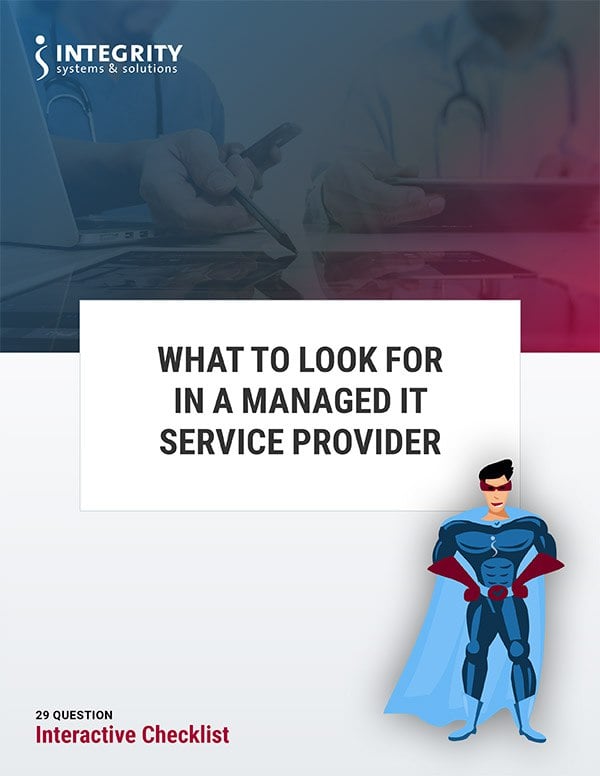The Integrity Blog
Insight into what questions dental and medical practices should ask managed IT providers as they are searching for one. The checklist also dives into red flags to be on the look-out for.
If you prioritize finding the best IT solutions for your medical office, you're ahead of the game. Many practices don't spend much time addressing medical information security and patient privacy. Their lack of oversight could cost them BIG.
Share
Data Security | Practice Continuity
In late 2022, the U.S. Department of Health and Human Services warned of a growing ransomware threat that might impact the dental community, pointing to new ransomware operators that aggressively target the healthcare sector with increasingly sophisticated methods. In addition, according to a recent Health-ISAC and Booz Allen Hamilton report, ransomware remains at the top of healthcare cyberthreats, followed by phishing and spear-phishing attacks, third-party or partner breaches, data breaches, and insider threats.
Share

Insight into what questions dental and medical practices should ask managed IT providers as they are searching for one. The checklist also dives into red flags to be on the look-out for.
You can’t have eyes on your practice every moment, but you do have the technology at your disposal to make sure it’s covered 24/7: video surveillance.
Share
Data Security | HIPAA Guidelines
The Right of Access Initiative by the Office for Civil Rights (OCR) of the Department of Health and Human Services (HHS) was introduced in 2019. On September 20, 2022, the OCR noted that three new investigations pertaining to patients' right of access under the Health Insurance Portability and Accountability Act (HIPAA)—focused chiefly on dental practices—were underway. With these additional investigations, the OCR has issued 41 enforcement actions since the initiative began.
Share
Data Security | Network Assessment
Some dental practices don’t see the value in a proper network assessment or the need for cybersecurity. But network security is critical in the dental field, as healthcare companies are at a much higher risk for attack, due to the vast wealth of protected health information (PHI) they house.
Share
Small dental practices can be some of the smallest businesses in an area, and are often eclipsed by well-established, larger practices and giant dental corporations. With only one dentist, a dental assistant, a few hygienists and maybe one other staff member on the team, it’s easy to think that small dental practices can fly under the radar of hackers.
Share